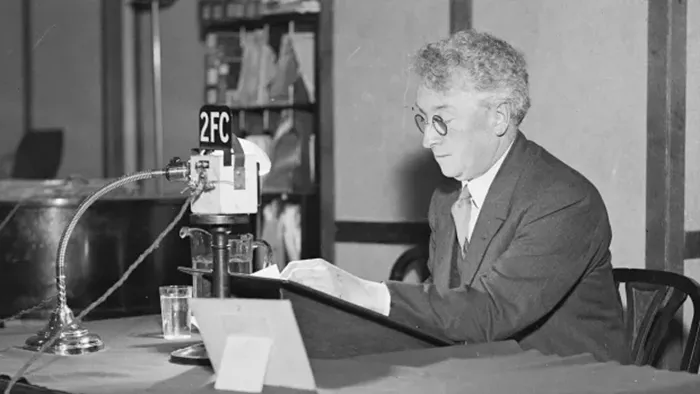Australia, with its rich and varied history, has seen numerous significant events unfold on May 22. From pivotal political developments and groundbreaking scientific achievements to cultural milestones and notable births, this date offers a fascinating glimpse into the nation’s past. This article explores the multifaceted history of May 22 in Australia, highlighting key events and figures that have shaped the country’s trajectory.
The Passage of the White Australia Policy (1901)
On May 22, 1901, the Australian Parliament passed the Immigration Restriction Act, a cornerstone of the White Australia Policy. This legislation aimed to restrict non-European immigration, reflecting the prevalent racial attitudes of the time. The policy significantly shaped Australia’s demographic landscape, influencing immigration patterns and social dynamics for much of the 20th century. It wasn’t until the mid-20th century that the policy began to be dismantled, culminating in its formal abolition in 1973.
Establishment of the Australian Commonwealth Naval Forces (1913)
May 22, 1913, marks the establishment of the Australian Commonwealth Naval Forces (ACNF), which later evolved into the Royal Australian Navy (RAN). The formation of the ACNF represented a significant step in Australia’s journey towards full sovereignty, providing the nation with an independent naval defense capability. This development was crucial in asserting Australia’s presence in regional maritime affairs and contributing to its national security.
National Sorry Day (1998)
May 22, 1998, is commemorated as National Sorry Day, an important date in Australia’s reconciliation process with its Indigenous peoples. The day was established following the release of the Bringing Them Home report, which documented the forced removal of Aboriginal and Torres Strait Islander children from their families, known as the Stolen Generations. National Sorry Day serves as a day of reflection and acknowledgement of the injustices faced by Indigenous Australians, fostering healing and promoting reconciliation.
The Discovery of Wi-Fi Technology (1992)
On May 22, 1992, Australian scientists working at the Commonwealth Scientific and Industrial Research Organisation (CSIRO) achieved a breakthrough in wireless communication technology, leading to the development of Wi-Fi. This innovation revolutionized global communication, transforming how people access and share information. Wi-Fi technology has had a profound impact on various sectors, including education, business, and entertainment, solidifying Australia’s reputation as a leader in technological innovation.
The Opening of the Sydney Opera House (1973)
May 22, 1973, is an important date in the history of the Sydney Opera House, as it marked a significant phase in its construction leading up to its completion. The Sydney Opera House, with its distinctive sail-like design, has become an iconic symbol of Australia and a UNESCO World Heritage site. Its opening transformed Sydney into a global cultural capital, hosting numerous world-class performances and events that have enriched Australia’s cultural landscape.
The Establishment of the Australian Broadcasting Corporation (1932)
On May 22, 1932, the Australian Broadcasting Commission (now Corporation, ABC) was officially established. The ABC has played a crucial role in shaping Australian media, providing news, entertainment, and educational content to the public. Its establishment marked the beginning of a new era in Australian broadcasting, promoting national unity and cultural expression through its diverse programming.
Peter Carey (1943)
Born on May 22, 1943, Peter Carey is one of Australia’s most acclaimed authors. His novels, such as “Oscar and Lucinda” and “True History of the Kelly Gang,” have won prestigious awards, including the Booker Prize. Carey’s work is known for its imaginative storytelling and exploration of Australian identity, history, and culture. His contributions to literature have earned him international recognition, making him a significant figure in Australia’s literary heritage.
Arthur Upfield (1890)
May 22, 1890, marks the birth of Arthur Upfield, a renowned Australian writer known for his detective novels featuring the character Detective Inspector Napoleon “Bony” Bonaparte. Upfield’s work is notable for its depiction of the Australian landscape and its incorporation of Indigenous Australian culture. His novels have left a lasting impact on the genre of detective fiction and have contributed to a greater understanding and appreciation of Australia’s diverse cultural heritage.
The Thredbo Landslide (1997)
On May 22, 1997, Australia remembered the tragic Thredbo landslide, which occurred on July 30, 1997, resulting in the deaths of 18 people. This natural disaster struck the Thredbo Alpine Village in New South Wales, highlighting the vulnerability of human settlements to environmental hazards. The tragedy prompted significant improvements in emergency response procedures and land-use planning to mitigate the risks of similar events in the future.
Celebrations and Commemorations
International Day for Biological Diversity
May 22 is celebrated globally as the International Day for Biological Diversity, and Australia, with its unique and diverse ecosystems, actively participates in this observance. The day aims to raise awareness about the importance of biodiversity and the need to protect the variety of life on Earth. In Australia, this day highlights the country’s rich biodiversity, including its unique flora and fauna, and promotes conservation efforts to preserve these natural treasures for future generations.
National Volunteer Week
May 22 often falls within National Volunteer Week in Australia, a time dedicated to celebrating the contributions of volunteers across the nation. Volunteering is a vital part of Australian society, with millions of Australians giving their time and skills to support various causes and communities. National Volunteer Week recognizes and honors these efforts, encouraging more people to engage in volunteer activities that strengthen social cohesion and community resilience.
Conclusion
May 22 has been a day of significant events in Australian history, reflecting the nation’s political evolution, scientific achievements, cultural developments, and social progress. From the establishment of key institutions and groundbreaking technological innovations to notable cultural contributions and commemorations, this date encapsulates the dynamic and diverse nature of Australia’s historical narrative. Reflecting on these events provides valuable insights into the nation’s past and underscores the importance of remembering and learning from history to inform Australia’s future. Through celebrating achievements and acknowledging challenges, May 22 serves as a reminder of the continuous unfolding of Australia’s story and the enduring impact of these moments on the nation’s identity and development.

